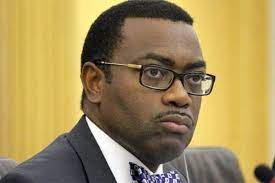The African Development Bank (AfDB) says its total portfolio in Nigeria currently stands at $4.4 billion.
The portfolio is for development projects.
In his opening remarks at the Joint Country Portfolio Performance Review (CPPR), the Director General for Nigeria Country Department, AfDB, Lamin Barrow, who stated this Friday in Abuja added that there have been significant improvement in the portfolio performance.
He said: “Currently, the Bank’s portfolio in Nigeria is one of the largest among the Regional Member Countries (RMCs), with a total commitment value of US$ 4.4 billion. These are 48 operations fairly evenly distributed between public and private sector operations.
“Since the 2022 CPPR Workshop, some of the portfolio performance metrics have improved. In particular, operations flagged for implementation challenges decreased from 36% in January 2023 to 32% in September 2023. This is a result of collective efforts from the Federal Ministry of Finance, the Executing Agencies and the Bank to reduce start-up and implementation delays. Indeed, the time taken to meet loan effectiveness and first disbursement conditions tend to be excessive. Let me acknowledge the unprecedented recent development with the FEC approval of the Ekiti Knowledge Zone project!
“We are pleased that the share of start-up delays has been reduced from 32% of flagged operations in June 2023 to 28% in October 2023, and is expected to reach 8% by end 2023 with timely and targeted actions for some projects.”
Barrow commended the Federal Government for the bold reforms initiated to address macro-economic imbalances and structural issues in the economy.
“These reforms, particularly removal of the fuel subsidies and unification of the exchange rates management system, will help reignite higher economic growth trajectory, despite the short-term pains to the population.
“This renewed drive for results and impact is clearly noticeable in the Bank’s interface with the Federal Ministry of Finance, and specifically the International Economic Relations Department,” he said.
Since the outbreak of the COVID-19 pandemic, Burrow said the Bank’s annual disbursements increased from UA 93 million in 2021 to UA 143 million in 2022 and projected to reach UA165 million by end December 2023.
According to him, fiduciary compliance has also improved with progress observed in the submission rate of audited financial statements by the executing/implementing agencies for financial Years 2021 and 2022.
“However, there is scope for further improvements in these and other areas. A more regular scheduling of our Quarterly Meetings will also help ensure that emerging issues in the portfolio management are addressed timely,” the AfDB chief said.
To further drive improvement in the implementation of its project, he said the Bank “decided to introduce Project Awards to recognize excellence and strong performance, showcase best practices, and incentivize Executing Agencies and Project Implementation Units to improve performance and delivery of development results. I am pleased to announce that the first Project Awards will be given out today. We hope that these recognitions will provide Project Teams added motivation to enhance project implementation performance and results.”
For his part, Director International Economic Relations Department, Federal Ministry of Finance, Budget and National Planning, Stanley George, said the aim of the workshop is to ensure Nigeria gets value for money.
He said, “If we take a facility we need to know how it is convertible to impact on people. The benefit is to the people that are our concern. We don’t want any delay. We want seamless implementation of these projects so that people on whose behalf this service was called would have immediate impact.”
The Director said the review would help proffer solutions to the delays that are encountered in the implementation of some projects.
“I want to use this opportunity to highlight some of the issues that may have inhibited the smooth performance of some of the portfolios. One of which is the long period of delay, low disbursement rate, and communication with various MDAs. I believe that some of these issues will be taken up at the very technical level, so that all stakeholders will know their critical roles,” he added.




